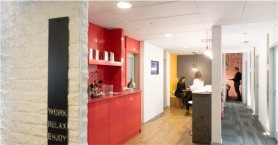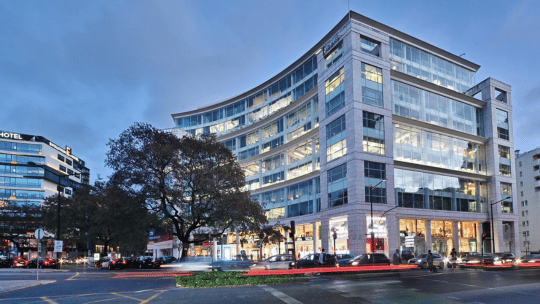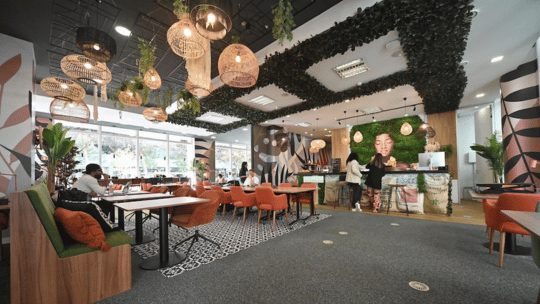|
In the past November, the city of Barcelona – Coworking European Capital – received the 4th Edition of the Coworking Europe Conference. More than 300 people from all over the world participated, during three days, in presentations, round tables, workshops and debates about coworking and shared best practices and inspiring experiments made in their spaces.
With the coworking community in a consolidation stage – the number of spaces, according to the Global Coworking Census 2013, has grown 82% in a total of almost 2.500 places, of which almost 50% in Europe – the question now is understanding which are the current trends and how will they evolve in the future. The discussion in Barcelona gave some clues showing that, alongside with the sector's consolidation, we start to watch now to two trends and movements which reflect the vitality and relevance of a recent flexible work model that is today a reality, no longer being used exclusively by startups and companies in the beginning of their activity. The preliminary results of the 2013 Global Coworking Survey presented by Carsten Foertsch from Deskmag point to a growth of niche coworking spaces and by providing new services in a diversification movement, in order to answer to the specific needs of sectors and activities. Despite the coworking concept was born in San Francisco, a couple of years ago and be associated to flexibility, informality and its creative industry, it moves today towards the sense of diversification. Both in the USA and Europe it has been proved to be a growing number of “traditional” coworking spaces which already have also secretariat support and other services to the coworkers' community, getting closer, in this aspect, of the hybrid models which conciliate the best of the three worlds: serviced offices, virtual offices and coworking. Of the more known examples its highlighted the international success case of the Grind (New York and Chicago) which also stands out by its technology on behalf of the collaboration spirit – existence of a private social network - the eOffice (London) or the VipOffices (Brussels) that prove the coworking concept also fits a more corporate environment, promoting on an equal basis the collaboration, sharing, and team work. The second trend is the emergence of associations which gather coworking communities and proceed to a specific purpose on a revealing movement of the critical mass of the sector. The more curious, are the reasons that take communities to associate among themselves. Along with the several shared examples in Barcelona, I highlight one for its originality. In Canada was created a coworking spaces association with the purpose to provide health insurances to the space coworkers, collaborators and their families. The Barcelona Conference came to show us that the coworking is no longer a promise, it became a reality – very present in the explosion of these spaces at a global level, including Portugal. What we see at moment is an enormous diversification in terms of spaces and services More and more coworking spaces kind of pure in terms of concept will stop exisiting. There are spaces meant for different professionals, activities and companies with specific needs that search to make good use of the great advantage of the coworking as a work model: flexibility. |
Other articles
In today?s competitive job market, attracting top talent is only half the battle. Retaining...
The Re:Space is a project idea that aims to transform underutilized outdoor spaces into...
Avila Spaces has just launched a new initiative that promises to energize the business ecosystem...
Coming back to the office after a vacation can feel like a shock to the system. Let's...
Holidays are meant to be a time of rest, joy, and reconnection?with ourselves, others, and the...
We currently live in a reality where acceleration is a constant. More and more, we seek...
In the modern, fast-paced workplace, productivity often feels like a race against time....
The second edition of Remote Week in Fundão has been confirmed. In 2025, a new group of...
Avila Spaces has been awarded the prestigious ?Cinco Estrelas Regiões Award? in the ?Coworking...
Avila Spaces announces its sponsorship of Pedro ?Figgy? Figueiredo, one of Portugal's most...
After its initial launch aiming to provide information on the Web Summit 2024 and Lisbon's...
Avila Spaces has introduced, in collaboration with Elbo Pte, an open-access virtual assistant,...

















